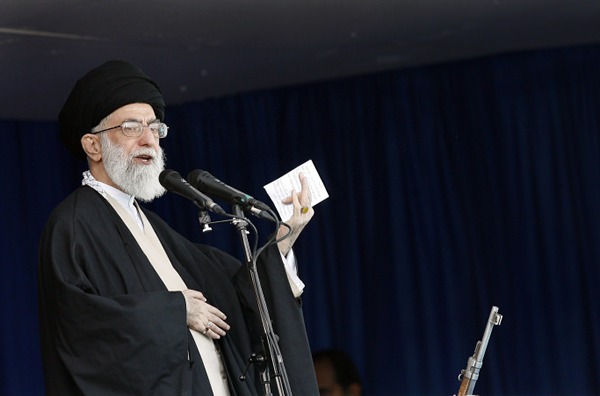By Kyle Orton (@KyleWOrton) on August 26, 2015
On Sunday the British Embassy in Iran was reopened after four years of closure. The British government’s decision is consistent with two emerging trends: the United States using the nuclear accord to facilitate détente with Iran, and European States falling into line with this policy and beginning to compete to enter the emerging Iranian market.
The British Embassy in Tehran was closed in November 2011 after ‘protesters’—a regime-orchestrated mob—stormed the building, ostensibly in protest against sanctions. The regime claimed helplessness in the face of angry demonstrators.
But it is worth remembering that when Iranian citizens take to the streets in a manner the regime actually disapproves of, it mobilises its security forces to murder them, and imprison them en masse in facilities where they are, male and female, raped as a form of punishment and torture.
In explaining the British about-face, foreign secretary Philip Hammond said that since the election of Hassan Rouhani as Iran’s president things had ‘steadily improved’.
While conceding there were still some ‘fundamental differences of view’ on ‘major issues’, Hammond hailed the ‘power of diplomacy’. This doesn’t include the power to stop Iran from executing dissidents and others at the fastest rate in many years, or the power to get Iran to halt its support to the Syrian regime’s murder machine.
What the diplomacy with Iran does have the ability to do, Hammond explained, is slake the ‘huge appetite’ of UK businesses and banks to begin commerce with Iran. Indeed, impediments to doing business could be eliminated by the spring. In this cold-blooded calculation the British government is hardly alone.
The governments of Europe—refined and progressive as they are—have rushed to do business in Iran. The Italian investment bank Mediobanca and the industrial giant Finmeccanica, for example, have recently signed deals to bring nearly $4 billion into Iran.
Iran’s economy is at least one-third owned by the Islamic Revolutionary Guard Corp, the praetorians charged with protecting and exporting the revolution via the Quds Force. Iran is consistently considered to be the lead state-sponsor of terrorism. Any business with Iran inevitably strengthens the most radical element of the regime, internally and externally as Iran’s push for regional hegemony intensifies.
Read the rest at Left Foot Forward …
